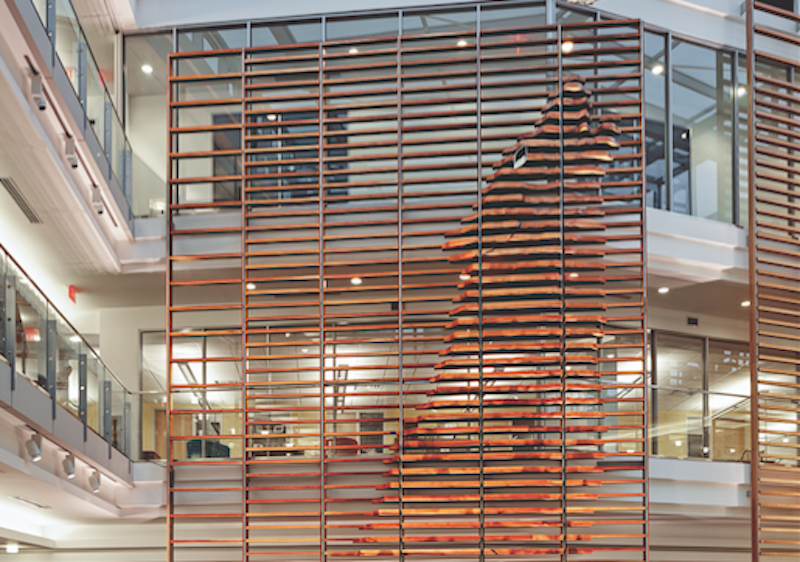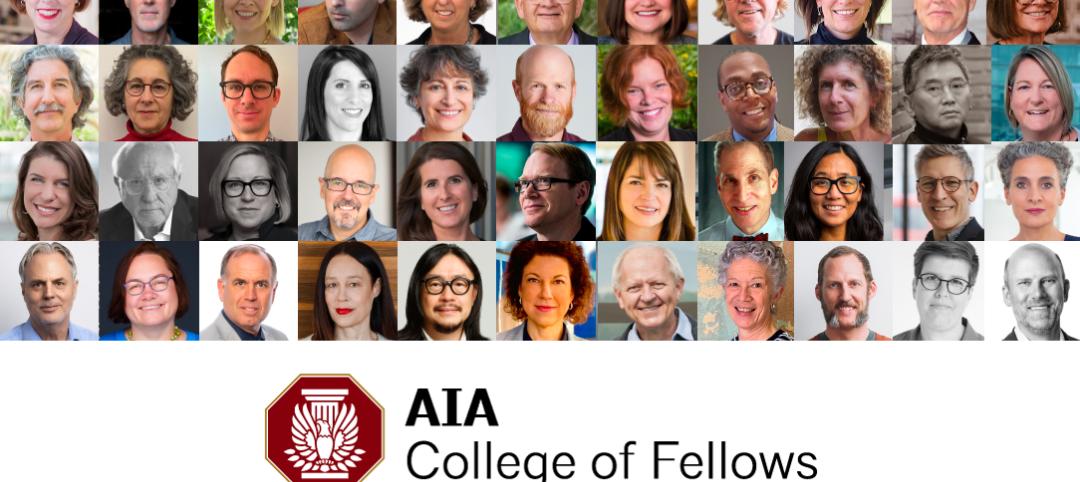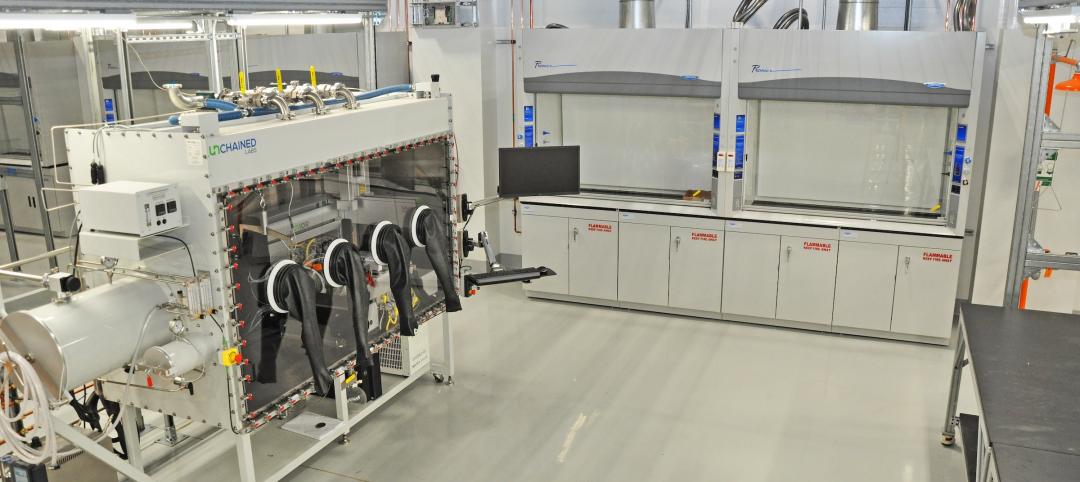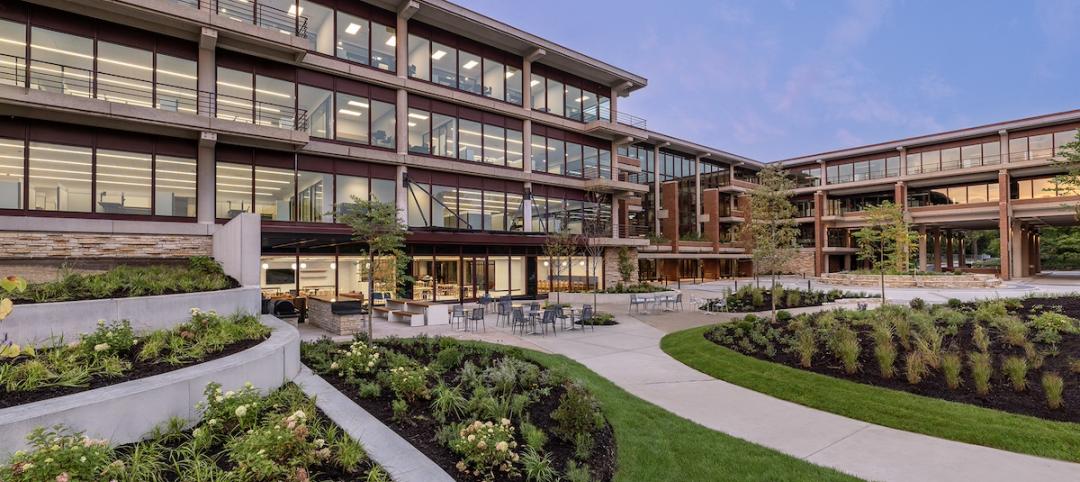Funding for the nation’s 1,700 or so public two- and four-year colleges remains well below pre-recession levels. Average state spending per student has fallen 17%—about $1,525—since the recession, according to the Center on Budget and Policy Priorities.
TOP 100 UNIVERSITY ARCHITECTURE FIRMS
Rank, Firm, 2015 Revenue
1. Gensler $79,810,000
2. Perkins+Will $59,960,000
3. CannonDesign $56,800,000
4. EYP $46,539,910
5. Stantec $37,993,785
6. Robert A.M. Stern Architects $24,802,000
7. Clark Nexsen $24,561,000
8. S/L/A/M Collaborative, The $21,833,000
9. CO Architects $21,475,500
10. HDR $21,406,400
TOP 100 UNIVERSITY CONSTRUCTION FIRMS
Rank, Firm, 2015 Revenue
1. Turner Construction Co. $1,124,325,847
2. Whiting-Turner Contracting Co., The $772,402,993
3. Skanska USA $535,834,200
4. Messer Construction Co. $521,400,000
5. Barton Malow Co. $470,447,175
6. Gilbane Building Co. $429,741,000
7. McCarthy Holdings $357,875,128
8. Consigli Building Group $343,722,913
9. Clark Group $335,471,145
10. Hensel Phelps $305,040,000
TOP 70 UNIVERSITY ENGINEERING FIRMS
Rank, Firm, 2015 Revenue
1. AECOM $65,000,000
2. WSP | Parsons Brinckerhoff $37,988,000
3. Jacobs $31,600,000
4. Affiliated Engineers $19,264,000
5. KJWW / TTG $16,943,913
6. Arup $15,856,593
7. Vanderweil Engineers $15,351,800
8. Simpson Gumpertz & Heger $13,586,000
9. Thornton Tomasetti $13,363,234
10. Dewberry $12,904,401
Money woes will continue to affect capital budgets and operations and maintenance allocations, says Mike Broge, PE, LEED AP, Higher Education Market Leader with Affiliated Engineers. That will only worsen an already significant backlog of deferred maintenance at many institutions, he says.
Budget constraints are compelling some public institutions to pursue alternative methods of financing their major building projects.
The University of Kansas leveraged a public-private partnership to initiate a $350 million redevelopment of its central district. The P3 deal includes a 265,000-sf integrated science building, a 40,000-sf student union, a central utility plant, student housing, and infrastructure upgrades. Most of the projects are scheduled for completion in mid-2018.
The University of Kentucky is among the schools that are enlisting developers to oversee their large on-campus projects. Memphis-based EdR is developing 14 new residence halls totaling 2.6 million sf on the Lexington campus. Two buildings are scheduled to open this fall; the others will be completed next summer.
“This approach keeps costs off universities’ books while still allowing them to stay ahead of the competitive curve with their facilities and on-campus amenities,” says Tim Steigerwald, SVP with Messer Construction.
Lack of capital has also contributed to a surge in master planning projects. Steigerwald says the University of Wisconsin is developing master plans for at least three large colleges, plus an overall campus infrastructure master plan. The goal: to achieve more efficient use of existing facilities through lower-cost renovations and spatial reconfigurations, thus avoiding costly additions or new facilities.
THE RISE OF INNOVATION SPACES ON Campus
To better equip students to excel in their future work environments, schools are developing a range of innovation spaces that promote hands-on, cross-disciplinary learning, foster unique business and industry partnerships, and encourage entrepreneurship.
Jeff Stebar, AIA, LEED AP, Higher Education Practice Leader at Perkins+Will, says that a phenomenon he calls “serendipitous cross-pollination” can occur across multiple disciplines working together in the same place. Such a structure models the 21st-century workplace and adds richness to the educational experience. “These spaces are typically owned by everyone, not by any specific college or dean,” he says.
That’s the idea behind the Collaborative Learning and Innovation Complex at Tufts University, Medford, Mass. Designer Stantec is transforming a 100-year-old warehouse into a new 95,000-sf facility that will house seven departments, ranging from physics and robotics to human development and community health. The teaching/research building incorporates open research labs shared by multiple areas of study, along with public social zones to foster interdepartmental collaboration. The project is part of a new Science and Technology Corridor that will also include a new 80,000-sf Science and Engineering Complex, designed by Payette. It is scheduled to open in 2017.
At the University of Utah, Lassonde Studios, designed by CannonDesign and Yazdani Studio, fuses a 400-bed residence hall with 20,000 sf of “garage space” where students can build a prototype, attend an event, or launch a business. Opening this fall, the facility has been designed to advance the university’s nationally ranked entrepreneurship program.
College libraries are also adapting to include technology-driven laboratories, informal group study workspaces, and cafés. A new 220,000-sf library under construction on Temple University’s main campus in Philadelphia will replace an existing 1960s-era facility with a dynamic, technology-rich environment. Designed by Snøhetta and Stantec, the $170 million project will accommodate Temple’s 2.5-million volume collection, student study space, research space, and staff areas.
A renewed interest in health careers is fueling demand for new health profession classroom buildings, clinical labs, and health-related research facilities.
“This trend is due in large part to a growing number of students who recognize the career opportunities afforded by a healthcare industry in the midst of a significant workforce shortage,” says Steve Rhoades, PE, LEED AP, Managing Principal, KJWW.
A 70,000-sf addition to the Columbia University nursing school is currently under construction in Manhattan. Designed by CO Architects and FXFOWLE, the seven-story structure will supplement the school’s existing classroom facilities with healthcare simulation technology, research facilities, and collaboration space. Expected to open in 2017, the building will include mock operating rooms, ICUs, ERs, and exam rooms where students can hone their nursing skills.
Private institutions are also jumping on the healthcare education bandwagon. The University of Pikeville, a private liberal arts college of 2,300 students in the coal country of Kentucky, is building a new 100,000-sf health professions education building that will open next year. Designed by Ayers Saint Gross, the facility will house the Bluegrass State’s first College of Optometry, as well as a nursing facility. The project is part of a strategic plan to upgrade the education needs of the Central Appalachia region and meet the growing demand for optometrists.
RETURN TO THE GIANTS 300 LANDING PAGE
Related Stories
Office Buildings | Mar 8, 2024
Conference room design for the hybrid era
Sam Griesgraber, Senior Interior Designer, BWBR, shares considerations for conference room design in the era of hybrid work.
Architects | Mar 8, 2024
98 architects elevated to AIA's College of Fellows in 2024
The American Institute of Architects (AIA) is elevating 96 member-architects and 2 non-member-architects to its College of Fellows, an honor awarded to architects who have made significant contributions to the profession. The fellowship program was developed to elevate architects who have achieved a standard of excellence in the profession and made a significant contribution to architecture and society on a national level.
Sports and Recreational Facilities | Mar 7, 2024
Bjarke Ingels’ design for the Oakland A’s new Las Vegas ballpark resembles ‘a spherical armadillo’
Designed by Bjarke Ingels Group (BIG) in collaboration with HNTB, the new ballpark for the Oakland Athletics Major League Baseball team will be located on the Las Vegas Strip and offer panoramic views of the city skyline. The 33,000-capacity covered, climate-controlled stadium will sit on nine acres on Las Vegas Boulevard.
Adaptive Reuse | Mar 7, 2024
3 key considerations when converting a warehouse to a laboratory
Does your warehouse facility fit the profile for a successful laboratory conversion that can demand higher rents and lower vacancy rates? Here are three important considerations to factor before proceeding.
Shopping Centers | Mar 7, 2024
How shopping centers can foster strong community connections
In today's retail landscape, shopping centers are evolving beyond mere shopping destinations to become vibrant hubs of community life. Here are three strategies from Nadel Architecture + Planning for creating strong local connections.
Market Data | Mar 6, 2024
Nonresidential construction spending slips 0.4% in January
National nonresidential construction spending decreased 0.4% in January, according to an Associated Builders and Contractors analysis of data published today by the U.S. Census Bureau. On a seasonally adjusted annualized basis, nonresidential spending totaled $1.190 trillion.
MFPRO+ Special Reports | Mar 6, 2024
Top 10 trends in senior living facilities for 2024
The 65-and-over population is growing faster than any other age group. Architects, engineers, and contractors are coming up with creative senior housing solutions to better serve this burgeoning cohort.
Architects | Mar 5, 2024
Riken Yamamoto wins 2024 Pritzker Architecture Prize
The Pritzker Architecture Prize announces Riken Yamamoto, of Yokohama, Japan, as the 2024 Laureate of the Pritzker Architecture Prize, the award that is regarded internationally as architecture’s highest honor.
Office Buildings | Mar 5, 2024
Former McDonald’s headquarters transformed into modern office building for Ace Hardware
In Oak Brook, Ill., about 15 miles west of downtown Chicago, McDonald’s former corporate headquarters has been transformed into a modern office building for its new tenant, Ace Hardware. Now for the first time, Ace Hardware can bring 1,700 employees from three facilities under one roof.
Green | Mar 5, 2024
New York City’s Green Economy Action Plan aims for building decarbonization
New York City’s recently revealed Green Economy Action Plan includes the goals of the decarbonization of buildings and developing a renewable energy system. The ambitious plan includes enabling low-carbon alternatives in the transportation sector and boosting green industries, aiming to create more than 12,000 green economy apprenticeships by 2040.

















